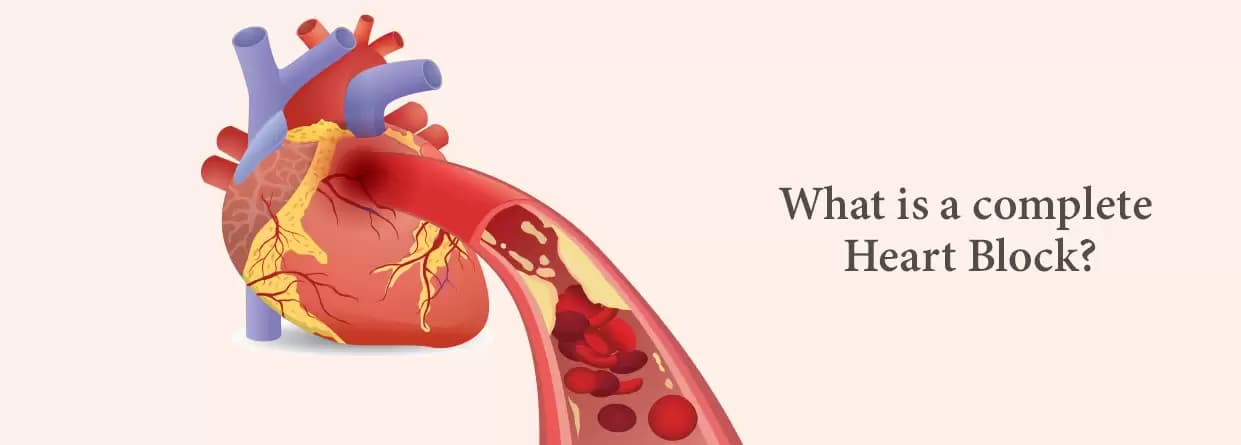
The heart has its own electrical conduction system that controls the rhythm and rate of the heartbeat. The sinoatrial (SA) node, located in the right atrium, is known as the natural pacemaker of the heart. It generates electrical impulses that spread through the atria and stimulates the atrioventricular (AV) node, which is located at the junction of the atria and ventricles. The AV node delays the impulse for a fraction of a second, allowing the atria to contract and fill the ventricles with blood before the ventricles contract and pump blood to the rest of the body.
Complete heart block, also known as third-degree atrioventricular (AV) block, is a serious medical condition that affects the electrical conduction system of the heart. It occurs when the electrical impulses that regulate the heartbeat are blocked or delayed as they travel from the upper chambers (atria) to the lower chambers (ventricles) of the heart.
Over the past decade, there have been immense advancements in the field of medical science which have paved way for effective treatment for long-term health benefits. This blog contains information regarding heart block and ways to manage it. However, please note that this blog is only for informational purposes and does not replace the significance of a cardiology doctor’s consultation.
The heart has its own electrical conduction system that controls the rhythm and rate of the heartbeat. The sinoatrial (SA) node, located in the right atrium, is known as the natural pacemaker of the heart. It generates electrical impulses that spread through the atria and stimulates the atrioventricular (AV) node, which is located at the junction of the atria and ventricles. The AV node delays the impulse for a fraction of a second, allowing the atria to contract and fill the ventricles with blood before the ventricles contract and pump blood to the rest of the body.
In a complete heart block, the electrical impulses generated by the SA node are completely blocked or delayed at the level of the AV node, preventing the ventricles from receiving the signal to contract. As a result, the ventricles contract independently of the atria, leading to a slow, irregular heartbeat.
Heart blocks are categorised into different types based on the extent of the electrical signal malfunction. Different types of heart blocks include -
Heart block symptoms vary from one individual to another depending on their medical health, the degree of the heart block, and whether there is any other cardiac issue associated with the individual. Depending on the type and severity of the heart block, the patient may experience mild to moderate symptoms. Most people with first-degree heart block may not experience it and are usually not found until diagnosed. However, common symptoms include -
The causes of complete heart block can vary, but they generally fall into two categories: structural and functional. Structural causes include heart diseases, such as myocardial infarction (heart attack), cardiomyopathy (disease of the heart muscle), and congenital heart defects. Functional causes include medication side effects, electrolyte imbalances, and certain autoimmune diseases.
The doctor may leverage physical examinations along with several diagnostic tests to know the type and severity of the blockage. Diagnosis of a complete heart block typically involves an electrocardiogram (ECG), which measures the electrical activity of the heart. A complete heart block will show up as a pattern on the ECG where the atria and ventricles are contracting independently of each other. Additional tests, such as an echocardiogram or stress test, may be necessary to determine the underlying cause of the block.
Treatment for complete heart block depends on the severity of the condition and the presence of symptoms. In some cases, no treatment may be necessary, particularly if the heart is able to compensate for the block and maintain a normal cardiac output. However, if symptoms are present, treatment may include the insertion of a pacemaker, which delivers electrical impulses to the heart and helps to regulate the heartbeat.
In summary, complete heart block is a serious medical condition that affects the electrical conduction system of the heart. It can cause a slow, irregular heartbeat and lead to a variety of symptoms. If you are experiencing symptoms of complete heart block, it is important to seek medical attention promptly to determine the underlying cause and appropriate treatment. You can get in touch with a cardiologist expert in Kolkata at the BM Birla Heart Research Centre, the only cardiology hospital in the eastern region.
No, first-degree heart blocks are not serious and the symptoms may not even be apparent. It is only after a comprehensive diagnosis, the doctor can confirm the condition. Moreover, first-degree heart blocks do not even require treatment and often resolve on their own.
Yes, a person’s heart rate can increase in case of blocked arteries. A damaged heart keeps pumping blood through the body and as a result, can cause a high heart rate.
A complete heart block can be reversible in minor cases of acute myocardial infarction. However, in severe cases, the condition may not be reversible due to the extent of the damage.
There are several medical conditions and risk factors which contribute to the blockage in the arteries. Several reasons like -
Written and Verified by:

Dr. Rakesh Sarkar is a Senior Consultant in Cardiology & Electrophysiology at BM Birla Heart Hospital, Kolkata, with over 11 years of experience. He specializes in complex arrhythmia management, including atrial fibrillation, ventricular tachycardia, CRT-D, and conduction system pacing.
Similar Cardiology Blogs
Book Your Appointment TODAY
© 2024 BMB Kolkata. All Rights Reserved.